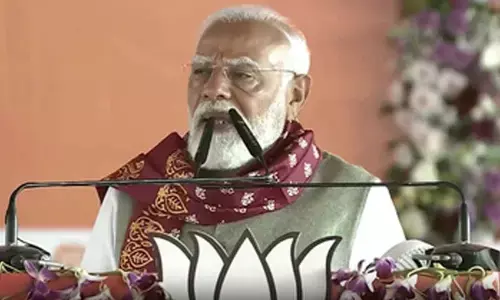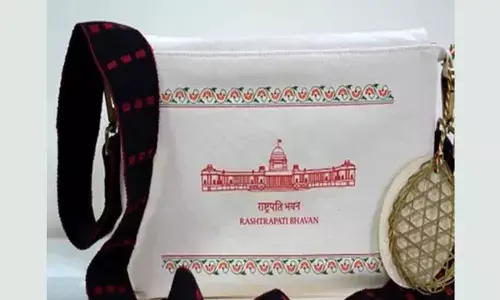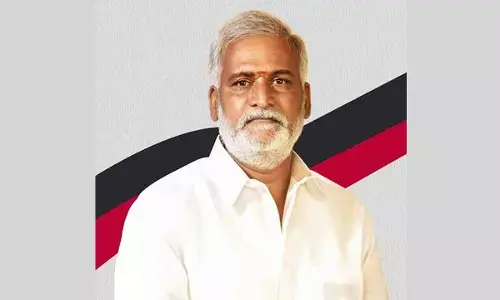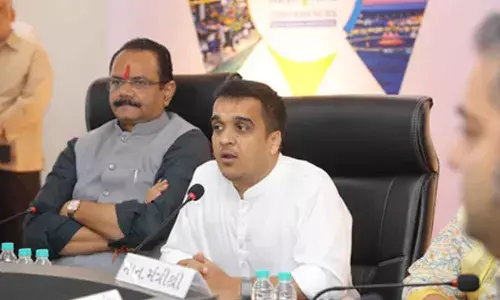Why ultra-processed foods so bad
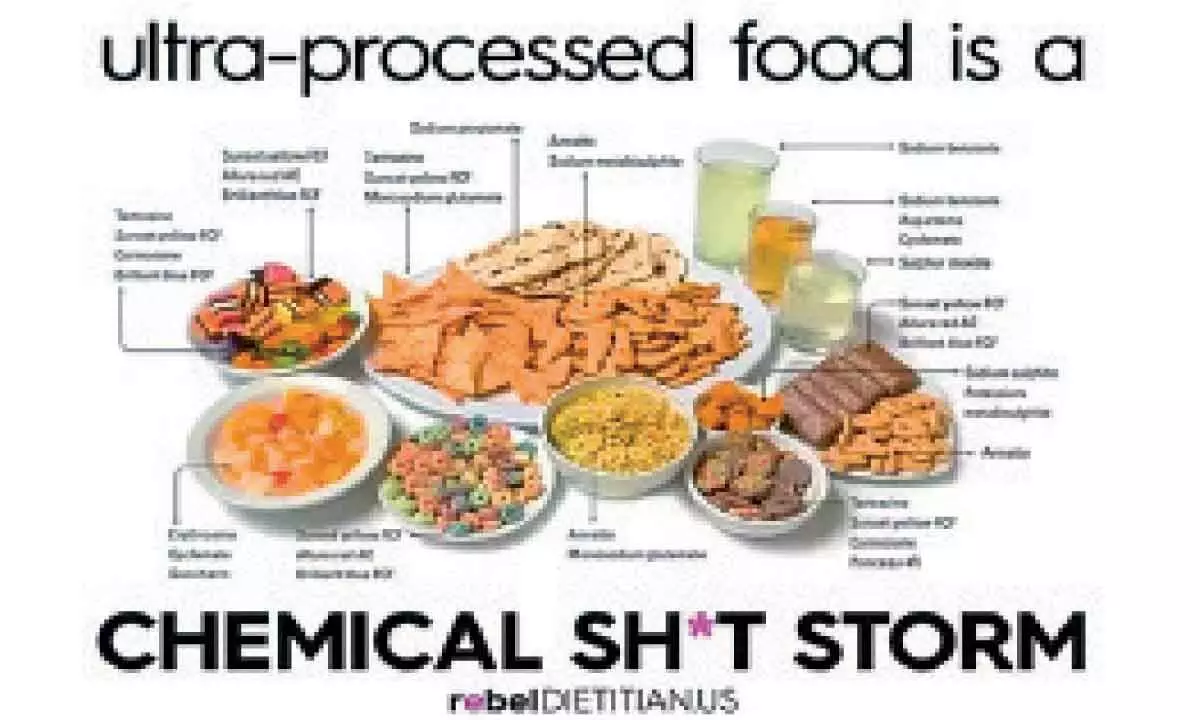
For the more discerning, my suggestion is to look at the True Food database (truefood.tech) that has accessed over 50,000 food products available in the US market and actually compares the level of processing that each of the listed products has undergone. This database is for ultra-processed food products available in the US. Before you ask me its relevance to India, let me tell you that many of these products are imported or their Indian versions are available in the market, meaning some of more or less similar products are processed here
As a diabetic I make it a strong point to carefully read the labels on processed foods before I make a choice. The first thing, of course, is that I look for how much of added sugar it contains. This means packaged juices, sharbats, malt-based beverages, breakfast cereals, chocolates, candy and flavoured yoghurts on the supermarket shelves, which contain high levels of sugar, are simply not to be touched. Gradually, I am becoming a little more watchful and do look for ingredients, many of which I don’t recognise, but still try to buy products that have comparatively less additives and preservatives.
I am still not very sure whether all my efforts have helped me to ward off the ill-effects of ultra-processed foods that fill the supermarket shelves nowadays, but I guess that being a little more careful then an ordinary consumer certainly helps. Knowing that nearly 73 per cent of the processed food products available in the United States, and 60 per cent in the United Kingdom, are ultra-processed products, it finally pays for any consumer to be extra careful. Many YouTube shows have talked of how harmful sugar can be for your health, while some even list the ingredients under which sugar is disguised.
But first, let’s first find out what ultra-processed foods means. In a blog by Harvard Medical School, ultra-processed foods are defined as: “They most likely have many added ingredients such as sugar, salt, fat and artificial colours and preservatives. These processed foods are made mostly from substances extracted from foods, such as fats, starches, added sugar and hydrogenated fats. They may also contain additives like artificial colours and flavours or stabilisers.”
Most products on the supermarket shelves normally contain a few of these ingredients. All I can say is that before you get dazzled by the attractive packaging; do try to read the labels on the pack. After all, studies have shown that 10 per cent increase in ultra-processed food consumption leads to an increased risk of breast cancer. Similarly, brominated vegetable oil has also been linked to ‘every form’ of thyroid disease, and so on. In any case, being a little more careful in selecting the right kind of processed food will save on medical bills later.
For the more discerning, my suggestion is to look at the True Food database (truefood.tech) that has accessed over 50,000 food products available in the US market and actually compares the level of processing that each of the listed products has undergone. It should serve as a simple guide for your dietary preferences. This database is for ultra-processed food products available in the US. Before you ask me its relevance to India, let me tell you that many of these products are imported or their Indian versions are available in the market, meaning some of more or less similar products are processed here. In any case, it will help you decipher the particular product line.
This brings me to the recent controversy involving a health coach and social media influencer Revant Himatsingka and the multinational giant Cadbury. In an Instagram post some days back, he challenged the claims being made by the company about its popular health drink Bournvita. His post had gone viral on the social media, and garnered over 12 million views on Instagram alone. It was shared widely on Twitter and Linkedin. But later, after he received a legal notice, he withdrew the video from social media and also apologised to the company. In his response, Himatsingka had said: “I apologise to Cadbury for making the video. I did not plan or intend to infringe any trademark or defame any company ...”
Fine enough. But while it was perfectly right for Himatsingka, who used the handle “Food Pharmer’ on social media, to offer unconditional apology to the food giant, the controversy did not end there. After all, it isn’t desirable for any individual to get into a prolonged law suit with a big legal firm. In his deleted video, he had shown: “They have 50 grams of sugar per 100 grams. Basically, the entire half of this bag is only sugar.”
Although Cadbury reiterated that “Bournvita is a scientifically designed formula made with ingredients that are approved for use and all our ingredients are declared on the pack,” it stroked a hot debate in the media. I am glad numerous voices in the media, with a lot of medical and health practitioners denouncing the effort by the company to browbeat the individual who was trying to create wider awareness about the so-called ‘health’ drinks, and at the same time these experts also challenged the nutritional claims.
In reality, the controversy points a finger at the lackadaisical attitude of the Food Safety and Standards Authority of India (FSSAI), which obviously has a lot to answer. Reports say that it is now toying with the idea of checking the qualification of the people who question the industry claims. This is rather unfair. Given that these processed products are consumed by the masses, everyone should have the right to question the claims.
Anyway, such has been the fallout of the growing evidence against the high sugar content in processed foods; Mexico was the first country to impose in 2014 a 10 per cent tax on sugary drinks, and which, some studies say, dropped the sale of sugar-sweetened drinks by 9.7 per cent in 2015. UK followed up with a similar tax in April 2018, and despite lobbying by sugar majors, many reports point to the reduction in sales and how it had impacted obesity growth figures. More recently, Brazil has passed a new legislation that prohibits sale, marketing and distribution of products that adds to obesity in school children, and that includes ultra-processed foods.
I don’t see any reason why India cannot come up with a sugar-tax on sugary drinks and at the same time stop TV advertisements of junk foods, which target children. In a country which many fear will be the diabetic capital of the world, a tough regulatory mechanism has to be put in place. This should also mean announcing penalties and punishment for celebrities who knowingly or unknowingly endorse such products.
Perhaps the best way forward is to protect the young children from getting addicted to junk foods. Catch them young, as they say.
It is in this regard that I found it very heartening to hear celebrity nutritionist Rujuta Diwekar ask parents to say a firm ‘No’ to children, the first time and every other time they demand junk food. At the same time, it is so important to encourage people to eat at home. More and more people need to talk about it. Don’t get swayed by the delivery options from Zomato and Swiggy, the real food festival is when you eat at home.
Drilling this kind of determination in the minds of young parents is what is absolutely essential if we have to save the society from the scourge of lifestyle diseases. Hope parents are listening








